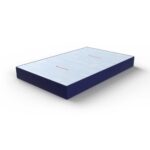Introduction
Crossword puzzles have long been a popular form of mental exercise, offering both challenge and enjoyment. Among the various types of crossword clues, the “trickery” crossword clue is one that often perplexes even seasoned solvers. These clues are designed to deceive, requiring creative thinking and a deep understanding of wordplay. In this detailed guide, we will explore the ins and outs of trickery crossword clues and provide strategies to help you conquer them.
What is a Trickery Crossword Clue?
A trickery crossword clue refers to a cryptic or indirect clue that uses deception to mislead the solver. These clues typically involve wordplay, double meanings, or hidden answers that are not immediately obvious. The trick is in the clue’s ability to misdirect, making solvers believe they’re looking for one type of word when, in fact, the answer lies in an entirely different direction.
Example:
Clue: Trickery in the market (4 letters)
Answer: SCAM
Explanation: The word “scam” is a synonym for trickery, and “market” might lead solvers to think of something related to commerce or trading. However, “scam” fits the definition of trickery, making it the correct answer.
Types of Trickery in Crossword Clues
To tackle trickery crossword clues effectively, it’s essential to familiarize yourself with the various types of wordplay and misdirection these clues often employ. Here are some of the most common forms of trickery in crossword clues:
1. Double Meanings
Many trickery clues rely on words or phrases that have more than one meaning. The clue might seem to point to one definition, but the answer lies in another interpretation of the same word.
Example:
Clue: Lead (4 letters)
Answer: GUIDE
Explanation: “Lead” can mean both the metal or to guide someone. In this case, “guide” is the correct interpretation.
2. Anagrams
An anagram clue involves rearranging the letters of a word or phrase to form the correct answer. Often, clues will contain indicator words like “mixed,” “scrambled,” or “rearranged” to suggest that an anagram is at play.
Example:
Clue: Mixed race car driver (7 letters)
Answer: RACECAR
Explanation: The word “mixed” suggests that the letters of “race car” can be rearranged to form the palindrome “racecar.”
3. Homophones
Homophone clues involve words that sound the same but have different meanings or spellings. These clues often use indicators such as “sounds like,” “heard,” or “said.”
Example:
Clue: Sounds like a cereal grain (4 letters)
Answer: RITE
Explanation: “Rite” sounds like “rye,” which is a cereal grain, but the clue is pointing to the word “rite,” meaning a ceremony or ritual.
4. Hidden Words
In hidden word clues, the answer is concealed within the letters of the clue itself. These clues are typically indicated by phrases such as “hidden,” “found in,” or “within.”
Example:
Clue: Found in the bar, a tool for cutting (4 letters)
Answer: SAW
Explanation: The word “saw” is hidden within the phrase “the bar.”
5. Reversals
In reversal clues, the answer is the reverse of a word or phrase given in the clue. These clues are often accompanied by indicators such as “backward,” “reversed,” or “turned.”
Example:
Clue: Turned red, perhaps (3 letters)
Answer: DER
Explanation: The word “red” is reversed to form “der.”
Strategies for Solving Trickery Crossword Clues
Solving trickery crossword clues requires both patience and practice. Here are some strategies to help you unravel these deceptive clues:
1. Break Down the Clue
One of the most effective strategies is to break the clue into parts. Many trickery clues are made up of two components: the definition (which gives a synonym or meaning of the answer) and the wordplay (which provides the answer in a less direct way). By separating these elements, you can focus on solving one part at a time.
2. Look for Indicator Words
Certain words in the clue can signal that a specific type of wordplay is in use. For example, words like “scrambled” or “mixed” may indicate an anagram, while “sounds like” may suggest a homophone. Recognizing these indicator words can help you identify the form of trickery in play.
3. Consider Multiple Interpretations
Trickery clues often rely on double meanings, so it’s essential to think about all possible interpretations of the words in the clue. The first meaning that comes to mind may not always be the correct one, so try to approach the clue from different angles.
4. Use Cross-Referencing
When solving a crossword, the letters from other answers can help you narrow down your options for tricky clues. If you’ve already filled in some letters for the intersecting words, use those letters to guide your thinking for the trickery clue.
5. Practice and Patience
The more you practice solving trickery crossword clues, the better you’ll become at recognizing patterns and common techniques. Over time, you’ll develop a knack for spotting misdirection and solving these clues more quickly.
Conclusion
Trickery crossword clues are designed to challenge and engage solvers by using misdirection, wordplay, and deception. By understanding the various forms of trickery, such as double meanings, anagrams, homophones, and hidden words, you can improve your solving skills and enjoy the puzzle-solving process even more. With practice, these seemingly impossible clues will become easier to tackle, and you’ll find great satisfaction in cracking them.
FAQs
Q: What are trickery crossword clues?
A: Trickery crossword clues are cryptic or indirect clues that use wordplay, misdirection, or hidden meanings to deceive solvers.
Q: How can I improve at solving trickery crossword clues?
A: Practice regularly, familiarize yourself with common forms of wordplay (like anagrams, homophones, and hidden words), and look for indicator words in the clue.
Q: Are trickery crossword clues more difficult than standard clues?
A: Trickery clues can be more challenging because they rely on abstract thinking and wordplay rather than straightforward definitions.
Q: Can breaking down the clue help with solving trickery crossword clues?
A: Yes, breaking the clue into parts (definition and wordplay) can make it easier to focus on one aspect of the clue at a time.
Common Types of Trickery in Crossword Clues
| Trickery Type | Description | Example Clue | Example Answer |
|---|---|---|---|
| Double Meaning | Clue has two possible interpretations | Lead (4 letters) | GUIDE |
| Anagram | Letters are scrambled to form the answer | Mixed race car driver (7 letters) | RACECAR |
| Homophone | The answer sounds like another word | Sounds like a cereal grain (4 letters) | RITE |
| Hidden Word | The answer is hidden within the clue | Found in the bar, a tool (4 letters) | SAW |
| Reversal | The answer is a reverse of part of the clue | Turned red, perhaps (3 letters) | DER |




